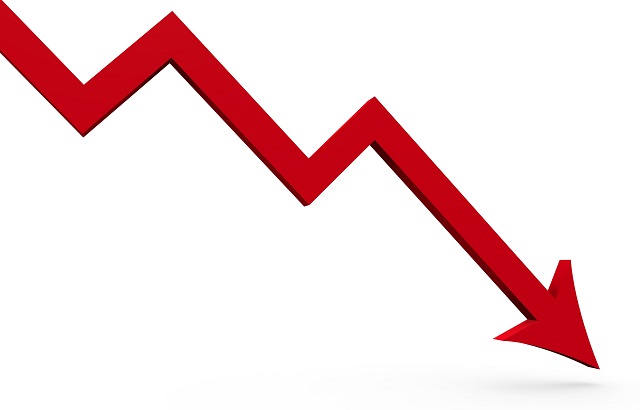Expectations for global economic growth have fallen to their lowest ever level, according to the latest Bank of America (BofA) Merrill Lynch global fund manager survey.
Despite becoming more bullish on the prospects for equities, April’s survey revealed a net 71% of global managers expect the global economy to weaken in the coming 12 months, the lowest recording in the survey’s history.
But, at the same time, month-on-month, global managers increased their allocation to equities by two percentage points (pps) to a 6% overweight position, while the allocation to bonds fell 12pps to a net 68% underweight.
“The disconnect between global growth and equity allocation remains staggering,” said Michael Hartnett, chief investment strategist at BofA Securities. “Though still at depressed levels, equities are nowhere near ‘recessionary’ close-your-eyes-and-buy levels,” he added.
Commodities and real estate
Perhaps in a sign investors are hunting for real assets, commodities and real estate saw surges in allocation month-on-month, both breaking survey records.
Commodities saw their allocation rise by 5pps to a net 38% overweight, while the allocation to real asset increased 7pps to a net 19% overweight.
Chris Metcalfe, chief investment officer at Iboss Investment Management, said since Jerome Powell, chair of the Federal Reserve, made his statement at the end of November 2021 that it was time to retire the word “transitory” in relation to inflation, bonds and equities have fallen pretty much in lockstep.
According to FE Analytics, since 30 November 2021 (when Powell made the statement) to 13 March 2022, the IA Global sector is down 9.68% and the IA UK Gilts sector has fallen 8.95%.
“Only seven out of the 404 funds in the whole fixed income universe have made positive returns since Powell’s speech,” said Metcalfe.
Broken 60/40 model
As a result, Metcalfe said not only does diversification continue to be key, but that the old 60/40 balanced portfolio model of holding equities and bonds finally seems to be broken.
“Asset allocators are going to need to be more creative than simple relying on the classic 60/40 barbell of stocks and bonds and an overweight to US assets,” he said. “This is a strategy which has worked fantastically well for many years, but we entered a new paradigm on 30 November and the world changed.”
The reason for the new paradigm, said Metcalfe, is that with inflation in the US at 7.5%, bond markets falling, and growth and technology selling off owing to interest rate rise expectations, Powell does not have the ability to ‘pivot’ to calm down the markets as he did at the end of 2018.
“Post the transitory speech, there has been an incredible divergence between the funds we hold,” he said. “Across all the sectors, the best performing funds up until December 2021 are the now the laggards in the new world, and the new winners are commodities, gold and global dividend-paying stocks.”
In addition to using real asset funds, such as property and infrastructure, Metcalfe said absolute return funds may also provide non-correlated returns in environments where equities and fixed interest fall simultaneously.








